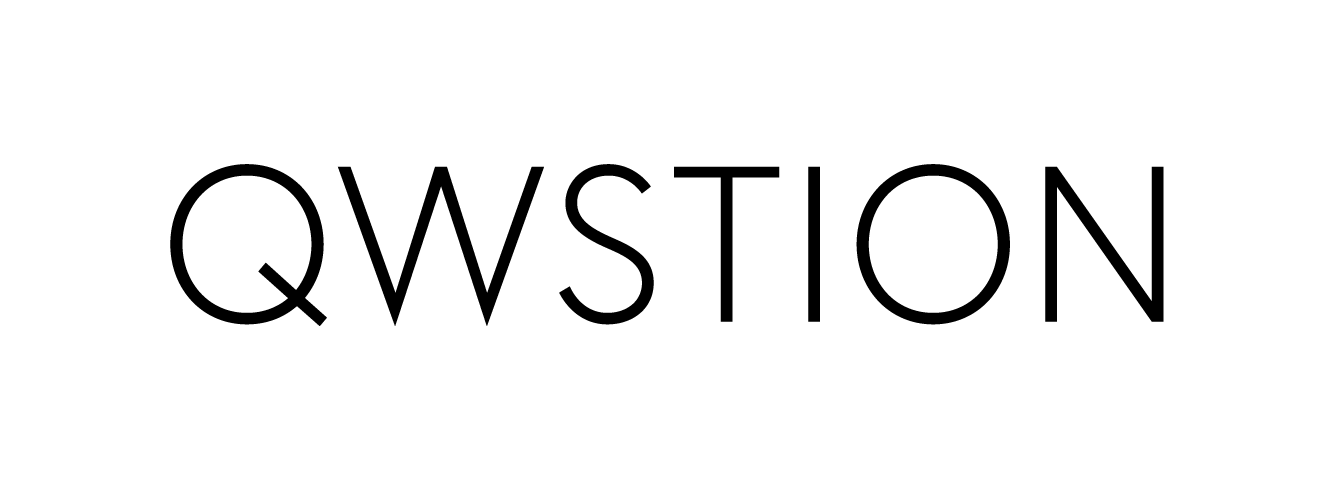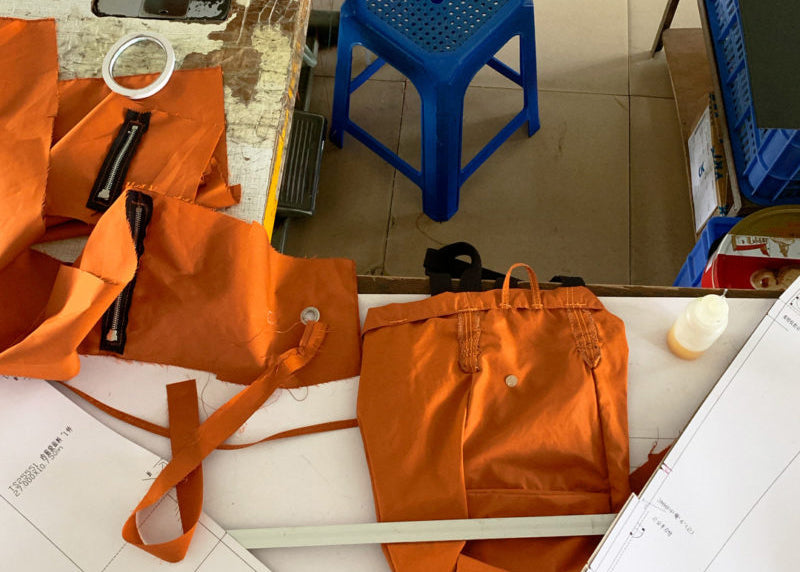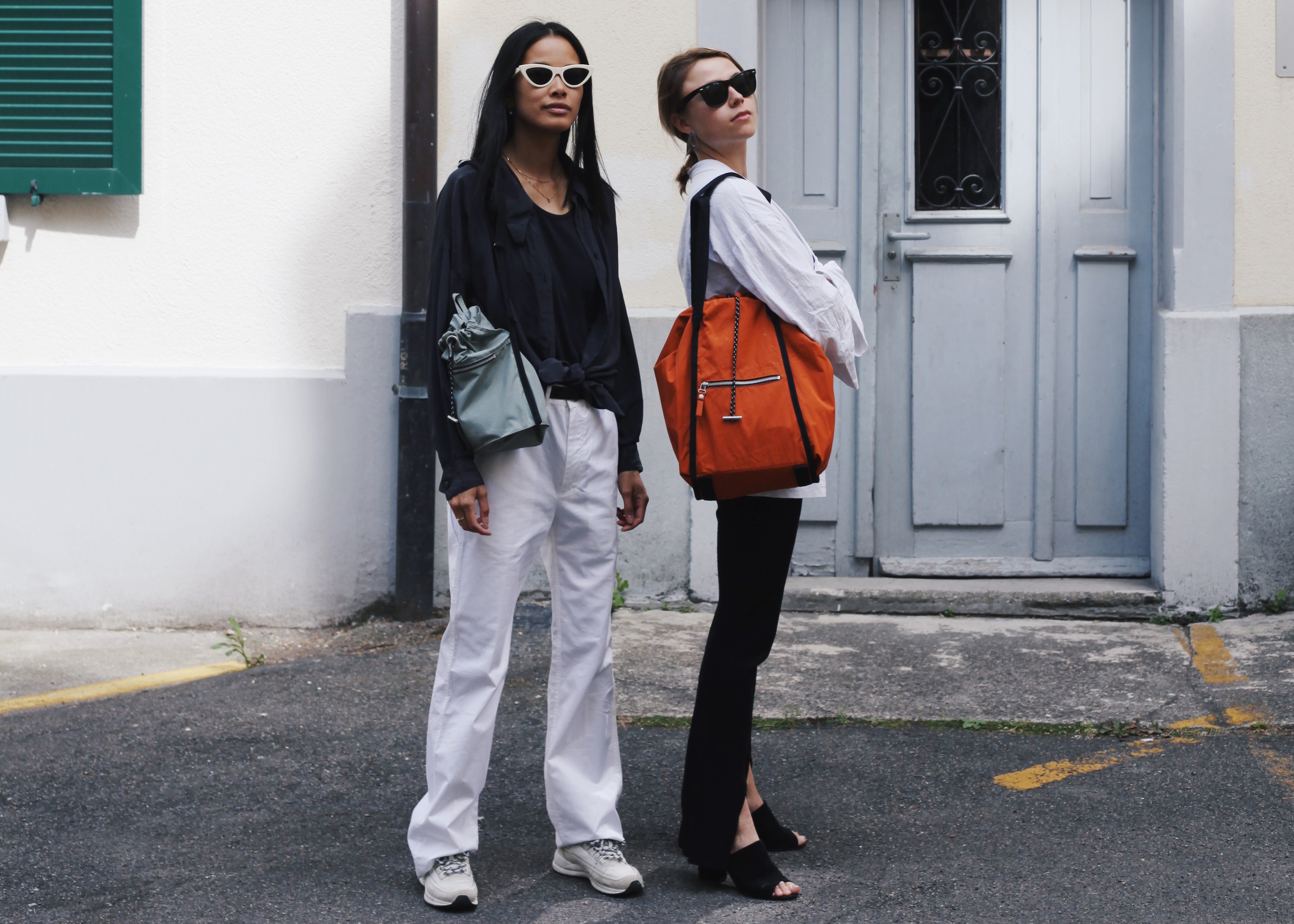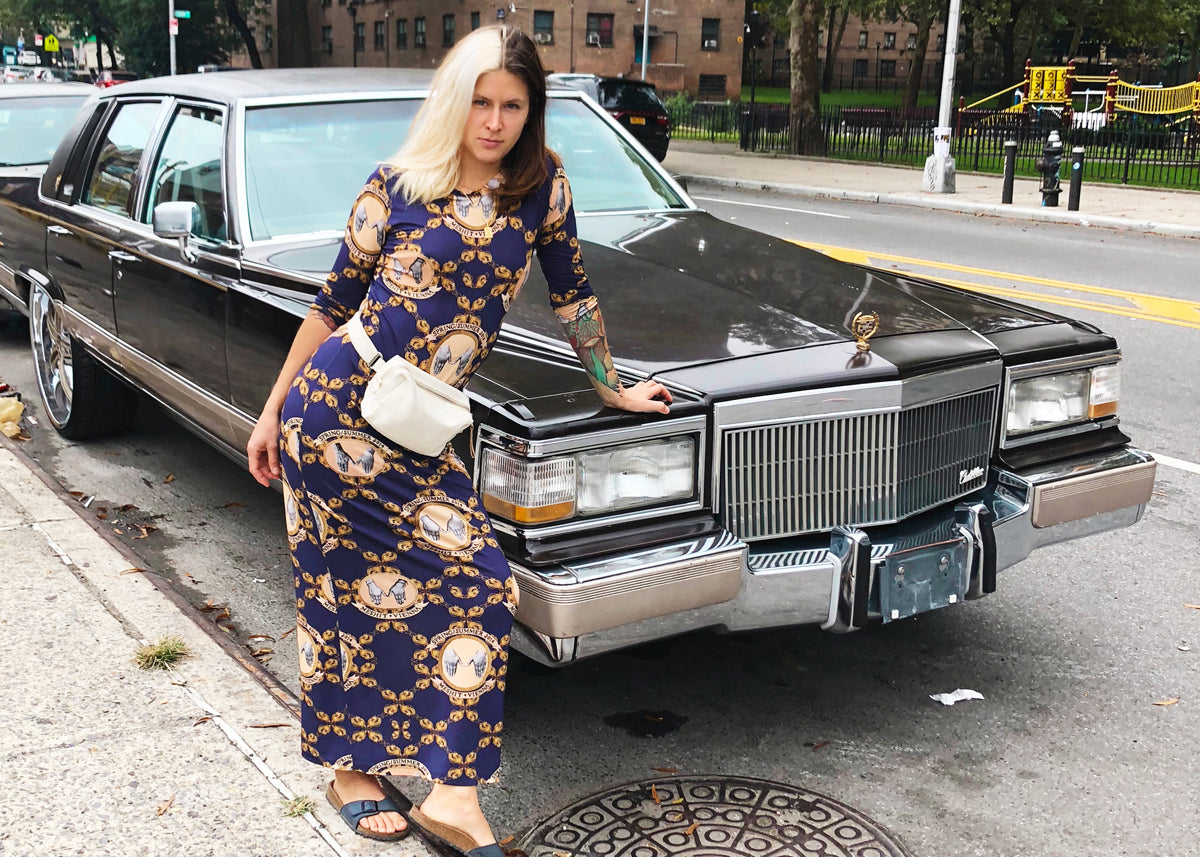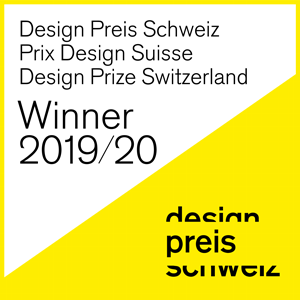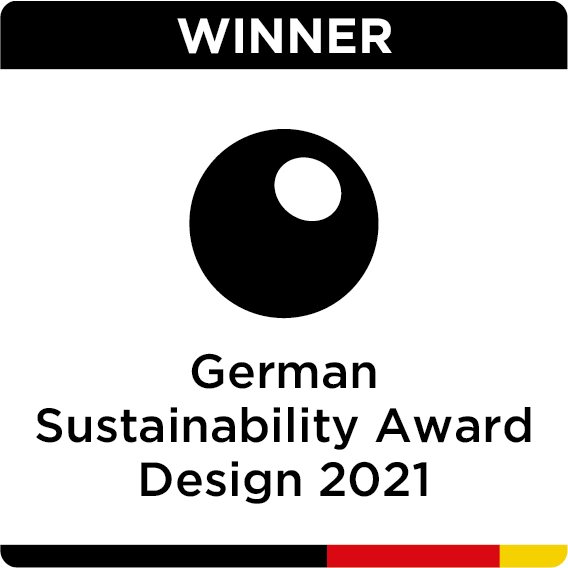TEXT BY
ANNA DOROTHEA KER
With the Biolight Collection we challenged ourselves to make lightweight bags from plants instead of plastic – which unfortunately is not the norm these days, and easier said than done. The performance-to-price ratio of petroleum-based fabrics is unmatched by natural fibres – that is, until you factor in the cost of environmental damages caused by plastics. A cost which we ultimately all are paying for in today’s linear economic system.

The QWSTION design team set out to develop a response to this issue in early 2019. The impetus began with an old favourite, the Travel Shopper – which we developed in collaboration with fellow Swiss designer and friend of QWSTION, Sibylle Stœckli back in 2015. Intended as a foldable travel bag, it became a beloved everyday staple for much of the team. However, its lightweight, packable nature could only be realised through a plastic-based fabric. It was time to give the functions the Travel Shopper fulfilled a more environmentally responsible upgrade.
The main challenge with BioLight was: How do we create a super lightweight bag that’s flexible, but still retains structure? It didn’t need to be a foldable bag per se, but it shouldn’t compromise between the qualities of a technical performance fabric – malleability, lightness and water resistance – and a solution according to circular design principles. The answer lay in a combination – of sturdy Bananatex® created a structured frame for the bag’s body, and the new BioLight material, woven from fine organic cotton fibres, allowing it to be both super lightweight, strong and biodegradable.


The Bucket Bag shape itself was only settled on around five months in. Given that we began with the Travel Shopper shape in mind, our design process took us on an iterative journey, with plenty of testing along the way. Various closure solutions, like the roll top featured in our Banantex Roll Pack, and a bucket bag sealed with a front flap, were amongst the designs we trialled. As with all of our bags, we worked closely with our production partners in Huizhou, China, to settle on a design that could be efficient to create, fairly priced, and kind to the planet all at once.


The Bucket Bag design, available in three sizes, ranging from Mini to Small and Medium, introduces a couple of brand-new functional details to our range, like the specially-designed drawcord closure. A toggle fastening and two small loops combine to create a special system: pull to open, pull to fasten. Not only does the drawcord allow us to save a lot of fabric, it also helps the bucket style to retain its shape. Another new functional detail is the key hook, which, tucked securely inside the front zip pocket, allows keys to be kept close at hand at all times.
As the next step on our journey towards full circularity and minimal impact, the BioLight Collection was created to go back to earth: at the end of its (very long) life, the metal fastenings, zippers and drawcord can be easily removed and recycled, and the fabric will fully biodegrade, leaving no trace. That’s something for a lot later, though – given the positive feedback we’ve had so far, we’d like to think our BioLight bags have many years worth of journeys ahead of them.

ANNA DOROTHEA KER
With the Biolight Collection we challenged ourselves to make lightweight bags from plants instead of plastic – which unfortunately is not the norm these days, and easier said than done. The performance-to-price ratio of petroleum-based fabrics is unmatched by natural fibres – that is, until you factor in the cost of environmental damages caused by plastics. A cost which we ultimately all are paying for in today’s linear economic system.

The QWSTION design team set out to develop a response to this issue in early 2019. The impetus began with an old favourite, the Travel Shopper – which we developed in collaboration with fellow Swiss designer and friend of QWSTION, Sibylle Stœckli back in 2015. Intended as a foldable travel bag, it became a beloved everyday staple for much of the team. However, its lightweight, packable nature could only be realised through a plastic-based fabric. It was time to give the functions the Travel Shopper fulfilled a more environmentally responsible upgrade.
The main challenge with BioLight was: How do we create a super lightweight bag that’s flexible, but still retains structure? It didn’t need to be a foldable bag per se, but it shouldn’t compromise between the qualities of a technical performance fabric – malleability, lightness and water resistance – and a solution according to circular design principles. The answer lay in a combination – of sturdy Bananatex® created a structured frame for the bag’s body, and the new BioLight material, woven from fine organic cotton fibres, allowing it to be both super lightweight, strong and biodegradable.


The Bucket Bag shape itself was only settled on around five months in. Given that we began with the Travel Shopper shape in mind, our design process took us on an iterative journey, with plenty of testing along the way. Various closure solutions, like the roll top featured in our Banantex Roll Pack, and a bucket bag sealed with a front flap, were amongst the designs we trialled. As with all of our bags, we worked closely with our production partners in Huizhou, China, to settle on a design that could be efficient to create, fairly priced, and kind to the planet all at once.


The Bucket Bag design, available in three sizes, ranging from Mini to Small and Medium, introduces a couple of brand-new functional details to our range, like the specially-designed drawcord closure. A toggle fastening and two small loops combine to create a special system: pull to open, pull to fasten. Not only does the drawcord allow us to save a lot of fabric, it also helps the bucket style to retain its shape. Another new functional detail is the key hook, which, tucked securely inside the front zip pocket, allows keys to be kept close at hand at all times.
As the next step on our journey towards full circularity and minimal impact, the BioLight Collection was created to go back to earth: at the end of its (very long) life, the metal fastenings, zippers and drawcord can be easily removed and recycled, and the fabric will fully biodegrade, leaving no trace. That’s something for a lot later, though – given the positive feedback we’ve had so far, we’d like to think our BioLight bags have many years worth of journeys ahead of them.

